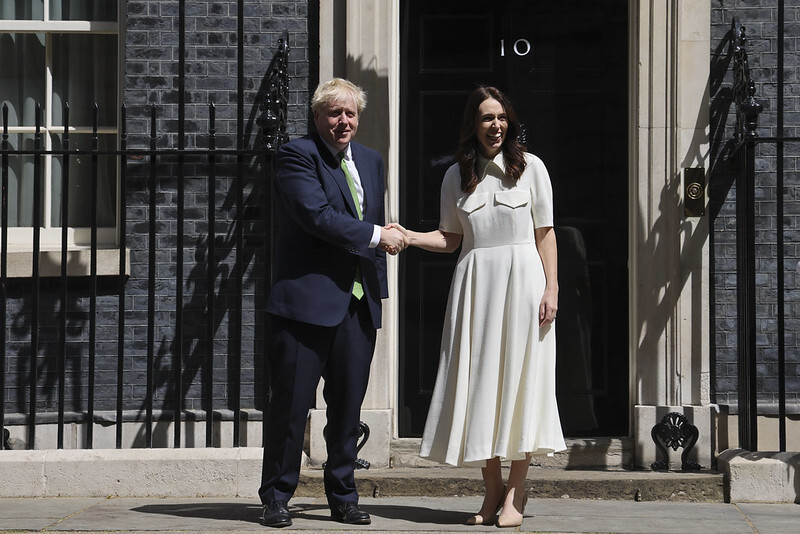
Jacinda Ardern: taking the political road less travelled
Quitting at the top of your game: it’s a cliché that applies more to sports than to politics. But Jacinda Ardern has managed to achieve it, capping a five-year run as New Zealand’s prime minister that consistently modelled leadership in a time when those in high office consistently came up painfully short.
Other resignation speeches of recent vintage – and there have been many – have often rested on a similar message: ‘I’m human’. But for that message to ring true, the person doing the leaving has to have shared their humanity with the public regularly and openly, through the ups and downs of what everyone knows is an extremely challenging job. To use it in the context of (let’s imagine…) constant charges of corruption and scandal; fiscal policy errors that spook markets and deplete the wealth of millions; or a general pattern of factional squabbling, only compounds the sense that this person is not like us.
There’s no doubt that Ardern has a more complex reputation within New Zealand than outside it. But her international acclaim has nonetheless come primarily as a result of her domestic leadership – on covid-19, and in the face of a catastrophic terrorist attack and a volcanic eruption.
The contrast between Ardern and leaders elected in other democracies in the same political era could not have been more stark.

I heard the news of the resignation not long after the privilege of sitting in a very impressive room with an even more impressive group of UK policy experts and former politicians. The issue at hand: how to move public services ‘from efficiency to resilience’. No one could doubt the topicality of that title, looking at the threadbare state of UK services – most notably the National Health Service (NHS), which is arguably at or past its breaking point – but also the widespread pay disputes affecting, seemingly, everything.
It was a stimulating but depressing discussion. Stimulating, because the consensus in the room was clear: the idea of ‘efficiency’ in public services – eliminating waste, cutting bureaucracy, doing ‘more with less’ – has, at the very least, had its day, and many felt it should never have been an objective at all. Depressing, because despite that consensus, the search for solutions quickly foundered – primarily on the rocks of rhetoric.
"The contrast between Ardern and leaders elected in other democracies in the same political era could not have been more stark."
One point that emerged clearly was the challenge of securing public buy-in for policies designed to build resilience or to take preventative actions. Those who had worked at senior levels in government were, generally, sceptical or even cynical about this possibility. This felt out of step with the reality of the last few years. Haven’t we just lived through a time when the UK population, along with many other countries’, has demonstrated a remarkable ability to grasp the urgency of preventative actions quickly and behave in concert with government policy? And didn’t that collective ability surprise policymakers themselves?
There are two paths available to people worried about convincing the public of the benefits of such policies. The first is to argue for them from a financialised basis: ironically, to argue for resilience or prevention, you have to find a way to argue for efficiency. There are plenty of examples of governments wasting money by digging their heels in: the latest came yesterday when the rail minister admitted paying rail workers more would have cost less than the strikes. Another example might be the galaxy of complicated means-tested benefits, where policy analysts often point out that relaxing the constraints around state grants would cost less than the system that imposes those constraints.
The second path is the one Ardern has followed successfully to the very end of her political career. She blazed a trail by using words that other politicians shy away from. Asked how she wants to be remembered, she said she would like New Zealanders to think of her as ‘someone who always tried to be kind’.
A theme that emerged from yesterday’s conversations was that of ‘littleness’. Many of us felt that the UK had become a small place: that politics no longer held the ambition it once had. Brexit is in itself a deliberate isolation. And younger generations have grown up with politicians who have accepted the first path – so much so that they were briefly excited and even inspired by Jeremy Corbyn. Most of the emerging policy solutions offered by political parties also feel small: Keir Starmer’s recent speech, for example, proposed a ‘Take Back Control Bill’ focused on localism and community-driven politics, putting the onus back on us to find solutions. It’s striking that he chose to use the word ‘Take’, and not ‘Give’, if it really is about devolving power, rather than duty.
I believe that the long-term difficulties facing the UK will not be resolved by this littleness, a narrative of caution. Whatever you think about Boris Johnson, that is his genius: to make people – including people well outside his natural political tribe – believe that things can get better. His ‘boosterism’ is transparently vacuous to those who study and make policy, but it works as rhetoric.
The question is whether the UK can get itself a leader who can do both: optimism and substance, competence and compassion. Jacinda Ardern has shown the way, right to the end.
---------
Tom King is a Director at Lodestone.